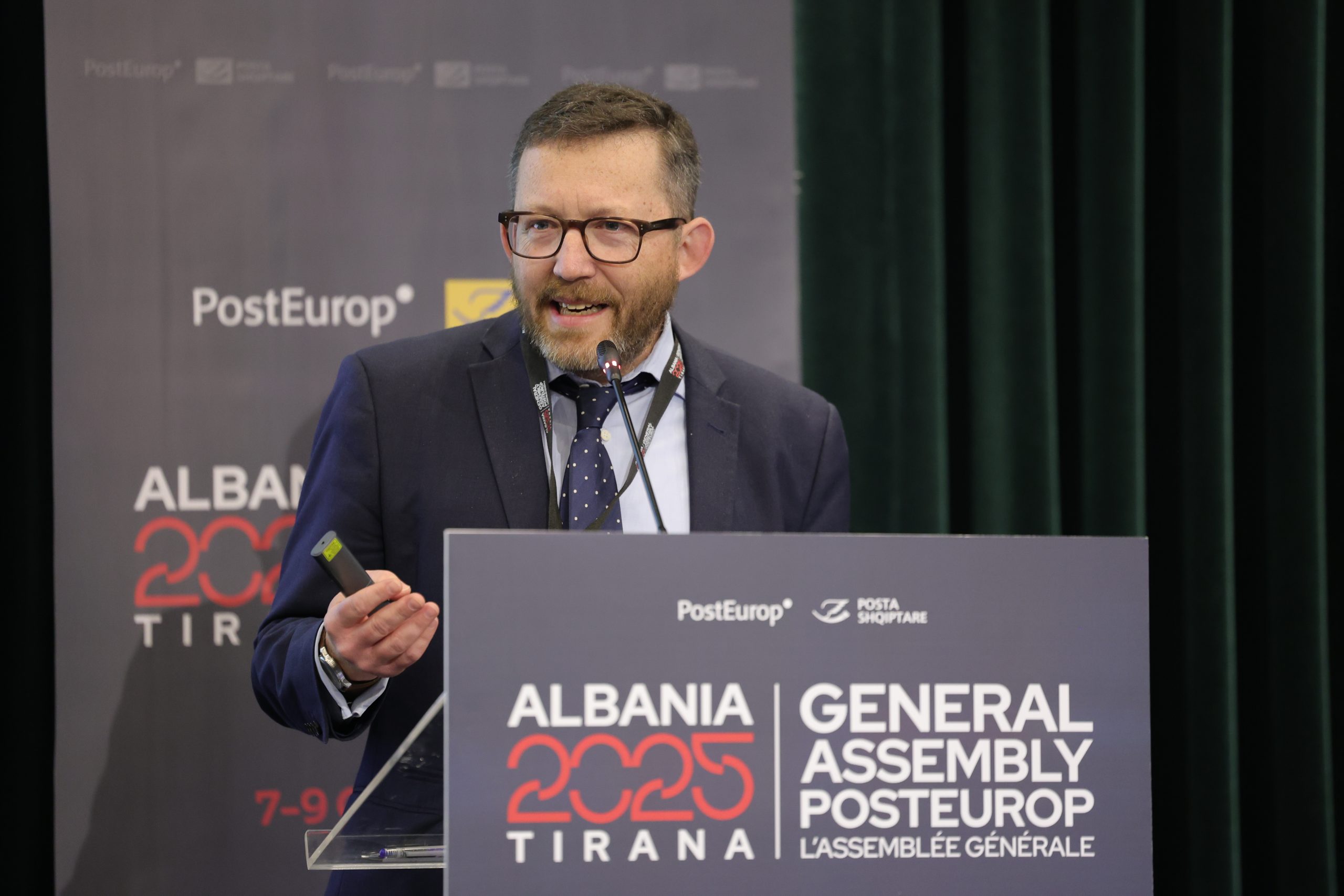Postal networks are critical infrastructure, yet they are increasingly tested by extreme weather, geopolitical shifts, and digital threats. Resilience is no longer optional — it is essential for service continuity, public trust, and long-term competitiveness.
The 2025 PostEurop Business Forum brought Europe’s postal leaders together to address this challenge head-on, focusing on practical strategies to strengthen infrastructure, protect operations and digital systems, and build adaptability for an uncertain future.
On World Post Day, 9 October 2025, postal operators, experts, and stakeholders from across Europe convened in Tirana, Albania, for the PostEurop Business Forum—an event held in conjunction with the PostEurop General Assembly organised on the day before. Opening the forum, Botond Szebeny, Secretary General of PostEurop, emphasised the critical importance of resilience and adaptability in an era marked by geopolitical instability, climate emergencies, digital disruption, and cybersecurity threats. He underscored that while product and service development remain central to the sector, the ability of postal networks to function under all circumstances—especially during crises—is what truly defines their value to citizens, businesses, and governments alike.
Hosted by Posta Shqiptare and supported by Albanian authorities, the forum brought together a distinguished lineup of speakers and panellists to explore how postal operators are responding to today’s complex risk landscape. Botond highlighted that the forum’s theme—chosen even before the unexpected disruption caused by the US Executive Order on cross-border shipments—proved to be both timely and urgent. He called on participants to engage actively, share insights, and co-create a common vision for a resilient and future-ready postal sector. The day’s agenda featured a keynote from the Economist Intelligence Unit and four thematic panels addressing geopolitical and economic disruption, climate resilience, digital transformation, and cross-border regulatory shocks.
Navigating Global Risk
Matthew Sherwood from the Economist Intelligence Unit delivered a compelling keynote that set the tone for the forum. He emphasized the increasing frequency and complexity of global crises, from cyber-physical attacks and geopolitical tensions to climate change and trade disruptions. Sherwood presented data-driven insights into operational risk forecasting and scenario planning, urging postal operators to adopt proactive strategies and build agility into their business continuity plans. He highlighted the interconnected nature of risks and the importance of anticipating inevitable surprises in an increasingly uncertain world.
Resilience in Action – Geopolitical and Economic Disruption
The first panel featured Alex Golosa (Ukrposhta), Thomas Auböck (Österreichische Post), and Pavlos Pavlides (Cyprus Post), who shared their experiences in maintaining postal operations under extreme conditions. Alex described how Ukrposhta continued service during wartime through mobile and modular post offices, autonomous power systems, and digital customs clearance. Thomas discussed Austrian Post’s strategy to manage declining mail volumes through cost-optimized product design and customer-centric innovation. Pavlidis highlighted the resilience challenges faced by island nations, including limited air connectivity and regulatory complexity, and emphasized the importance of IT infrastructure and business continuity planning.
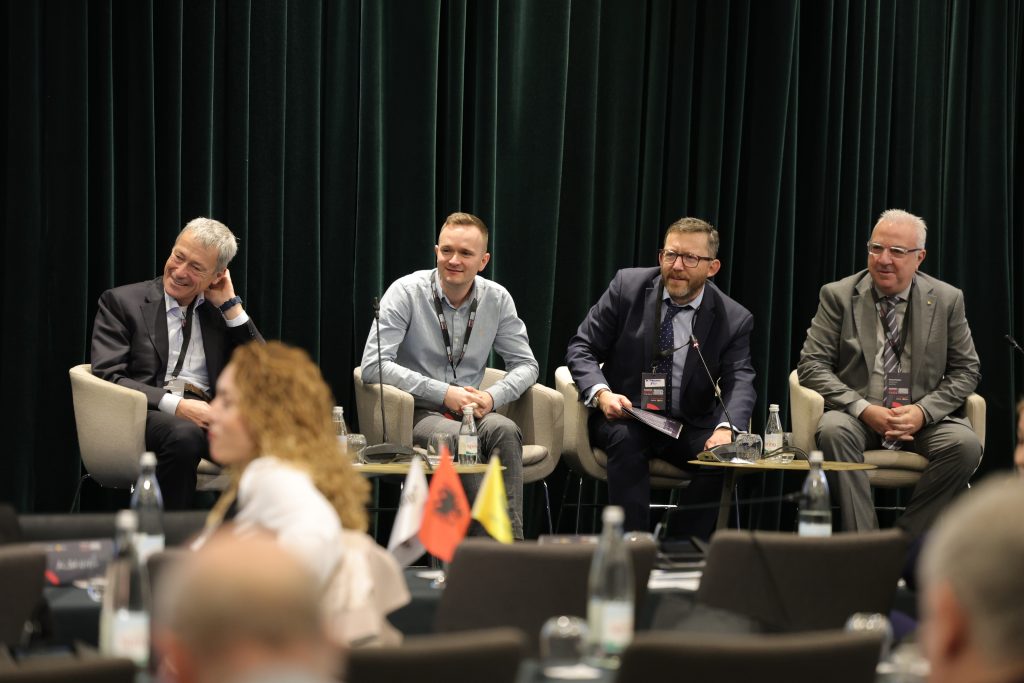
Climate Resilience and Disaster Recovery
The second panel brought together Elena Fernández (Correos), Yasemin Çina Yavuz (PTT Turkish Post), and Claire Baritaud (La Poste Groupe) to discuss climate-related disruptions and recovery strategies. Elena shared Correos’ response to the Dana floods in Valencia, including rapid restoration of services, coordination with government agencies, and mental health support for employees. Yasemin detailed Turkish Post’s mobilization following the 2023 earthquakes, deploying thousands of personnel and vehicles, restoring financial services, and coordinating international aid. Claire presented La Poste’s climate adaptation strategy, including risk analysis, investment in infrastructure resilience, and technical solutions to protect employees and maintain service quality.
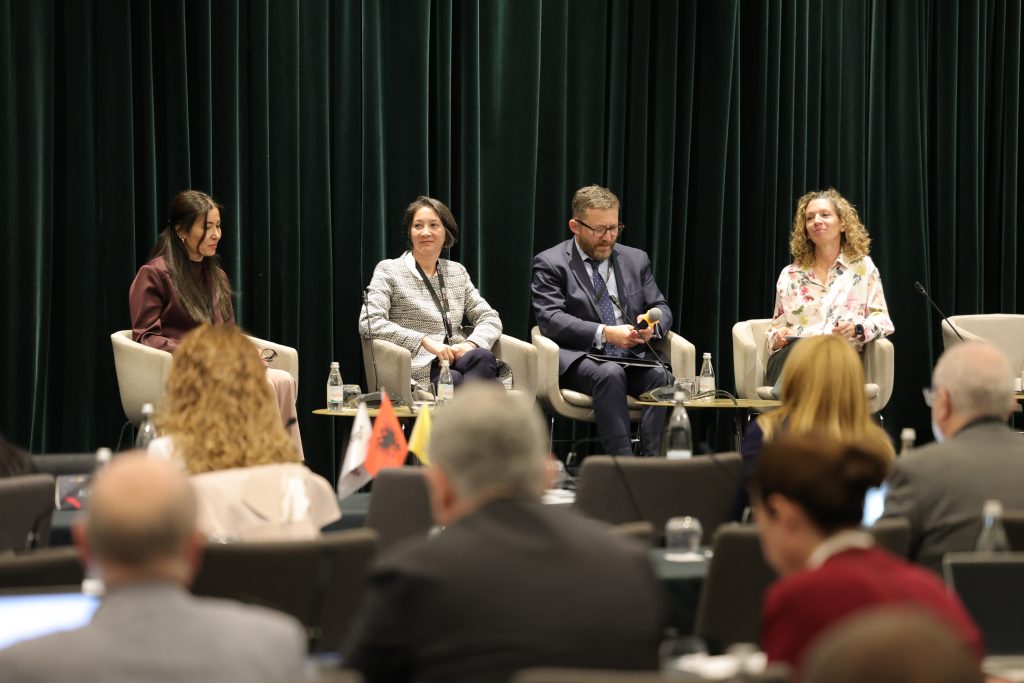
Digital and Operational Adaptability
Isjeda Çupi (Posta Shqiptare) and Slavko Ovčina (Pošta Slovenije) led the third panel, focusing on digital transformation and cybersecurity. Isjeda showcased Albania’s digital initiatives, including the e-commerce platform, hybrid mail, EPOSTA app, and open banking integration. She emphasised that digital transformation is not just about going paperless but about rethinking processes and delivering value. Slavko discussed the shift from reactive to proactive cybersecurity, highlighting the importance of data-driven forecasting, regulatory compliance, and leadership investment in building digital resilience.
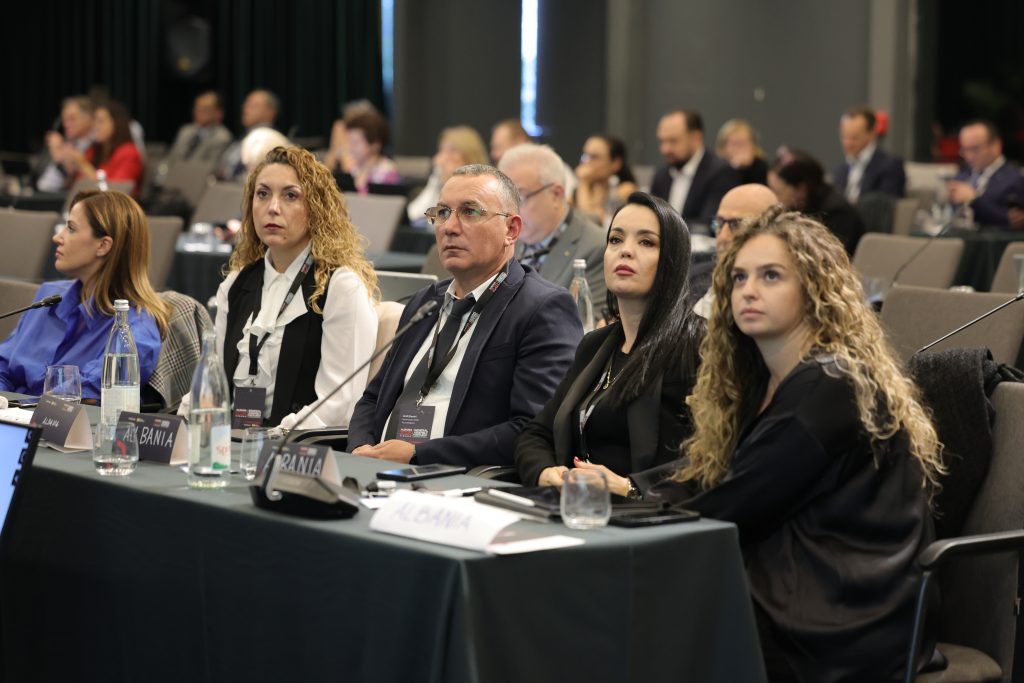
Lessons from the US Executive Order
The final panel featured Felix Blaich (Deutsche Post DHL), José Anson (UPU), and Mette Boisen (PostNord), who reflected on the sector’s response to the US Executive Order on de minimis shipments to date. Felix outlined the rapid coordination among PostEurop, IPC, and UPU, and emphasised the importance of multilateralism, simplicity, and clear communication. José presented a global perspective on resilience, identifying four key challenges: fragmentation, survival, war, and postal divide, and proposed responses including ecosystemic diversification, agile mindset and hyper-collaboration. Mette highlighted the critical role of airlines in the international supply chain and advocated for mutual partnerships and contractual clarity to ensure reliable mail transport.
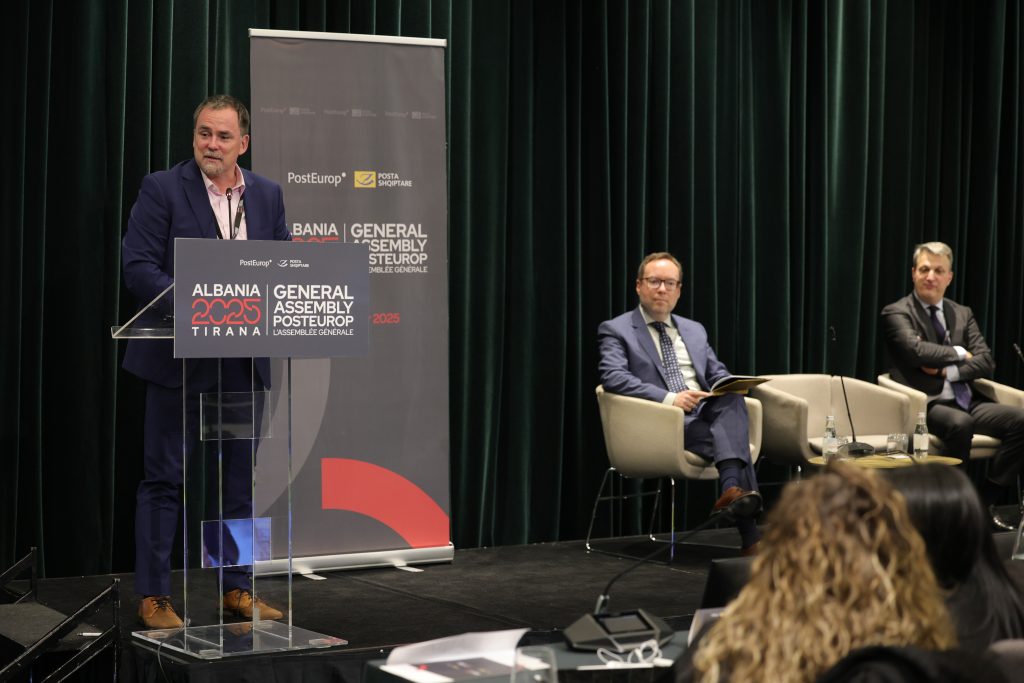
Closing Reflections and Future Directions
Elena Fernández concluded the forum by summarising key lessons: the interconnectedness of risks, the need for investment and agility, and the importance of collaboration across the postal ecosystem. She emphasised that postal infrastructure is a critical service and called for continued support from governments, regulators, and stakeholders. The forum reinforced the message that resilience is not just about reacting to crises, but about anticipating them, adapting with agility, and working together to safeguard the future of the postal industry.
[-ENDS-]
About PostEurop
PostEurop is the association which represents European postal operators. It is committed to supporting and developing a sustainable and competitive European postal communication market accessible to all citizens and ensuring a modern and affordable universal service. Its members employ 1.6 million people, operate over 212,000 service and pick-up points across Europe, handling billions of items a year and deliver to over 295 million homes and 48 million companies across Europe. For more information, go to www.posteurop.org
For more information, please contact:
Cynthia Wee Neumann
Communications Manager
André Feio
Communications Specialist
